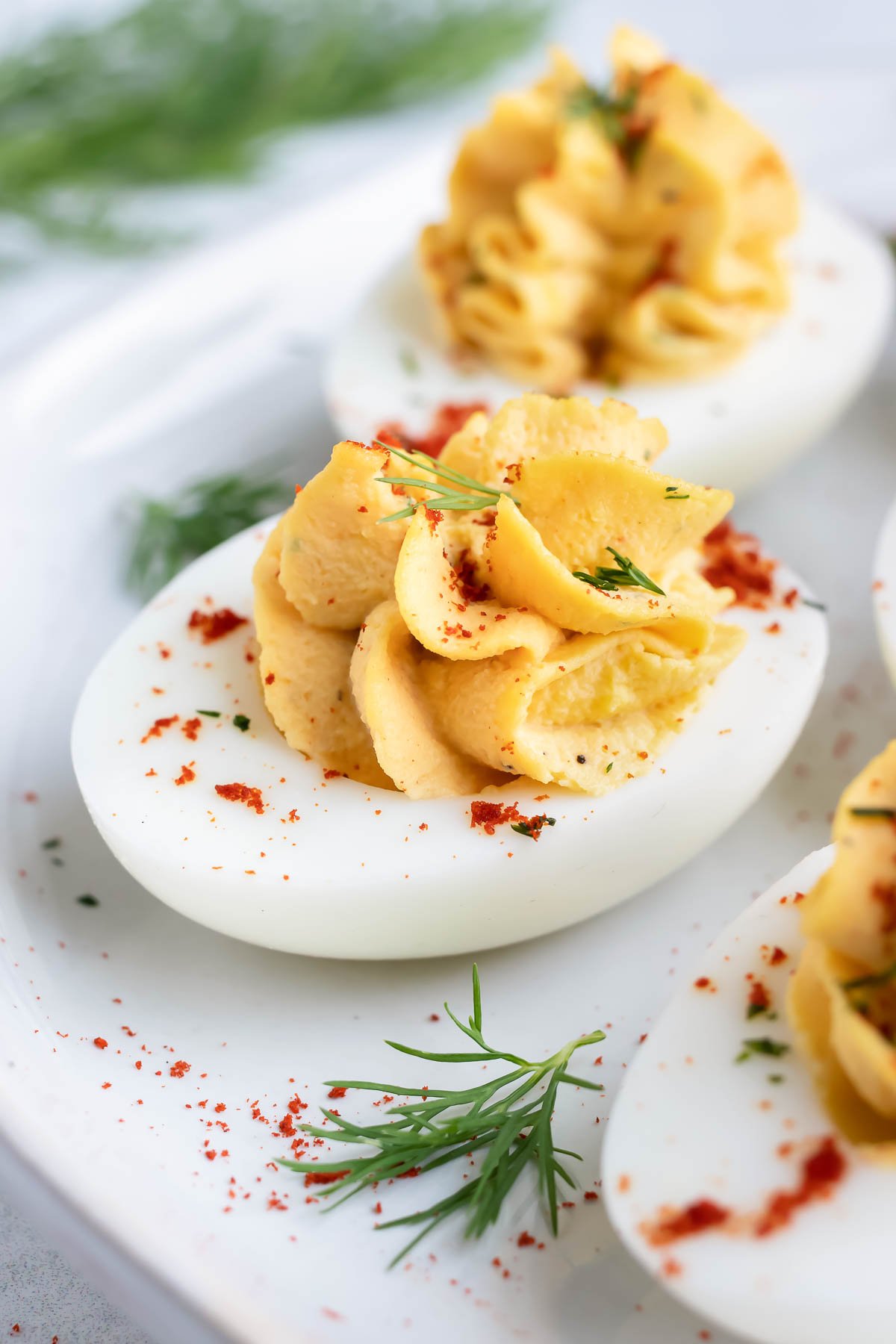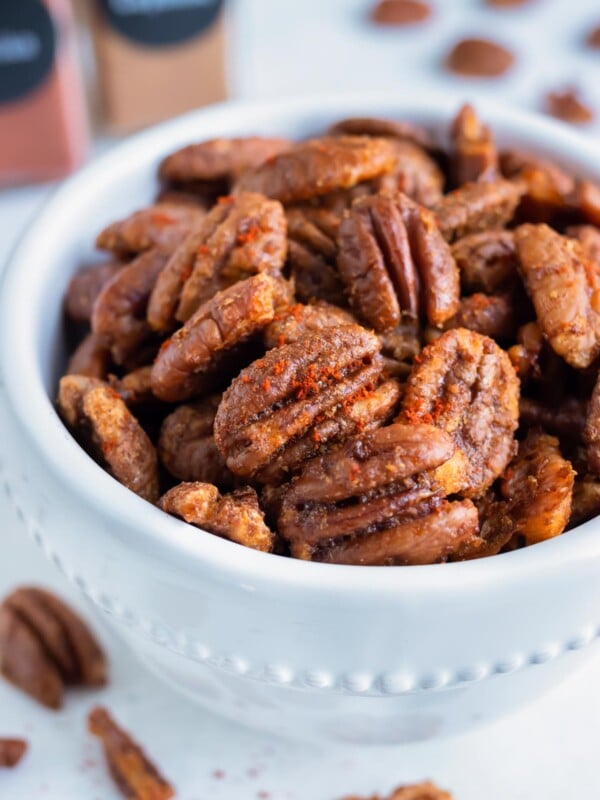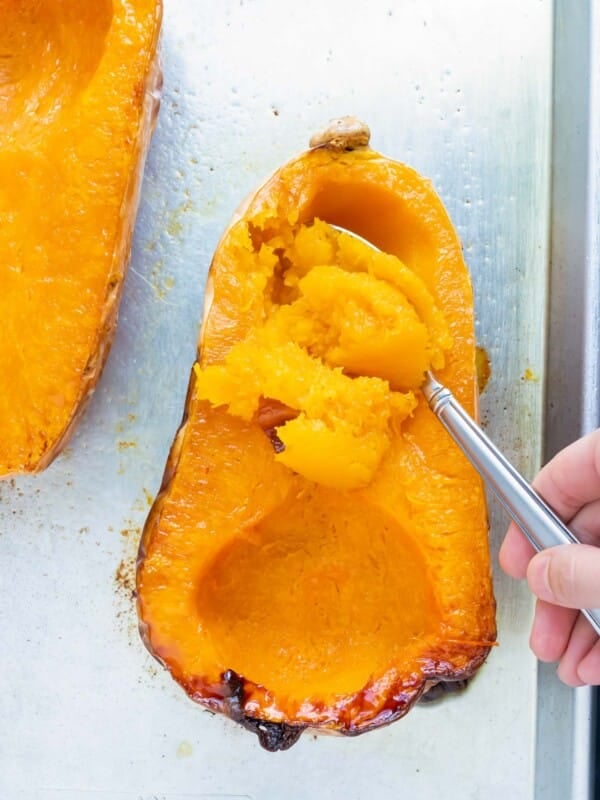Have you forgotten about a carton in the back of your fridge and are wondering, how long do eggs last? Find your go-to “egg guide” here with the best way to keep your eggs lasting for a long time while still tasting fresh. From raw to hard-boiled and egg whites to yolks, we’ve got you covered!
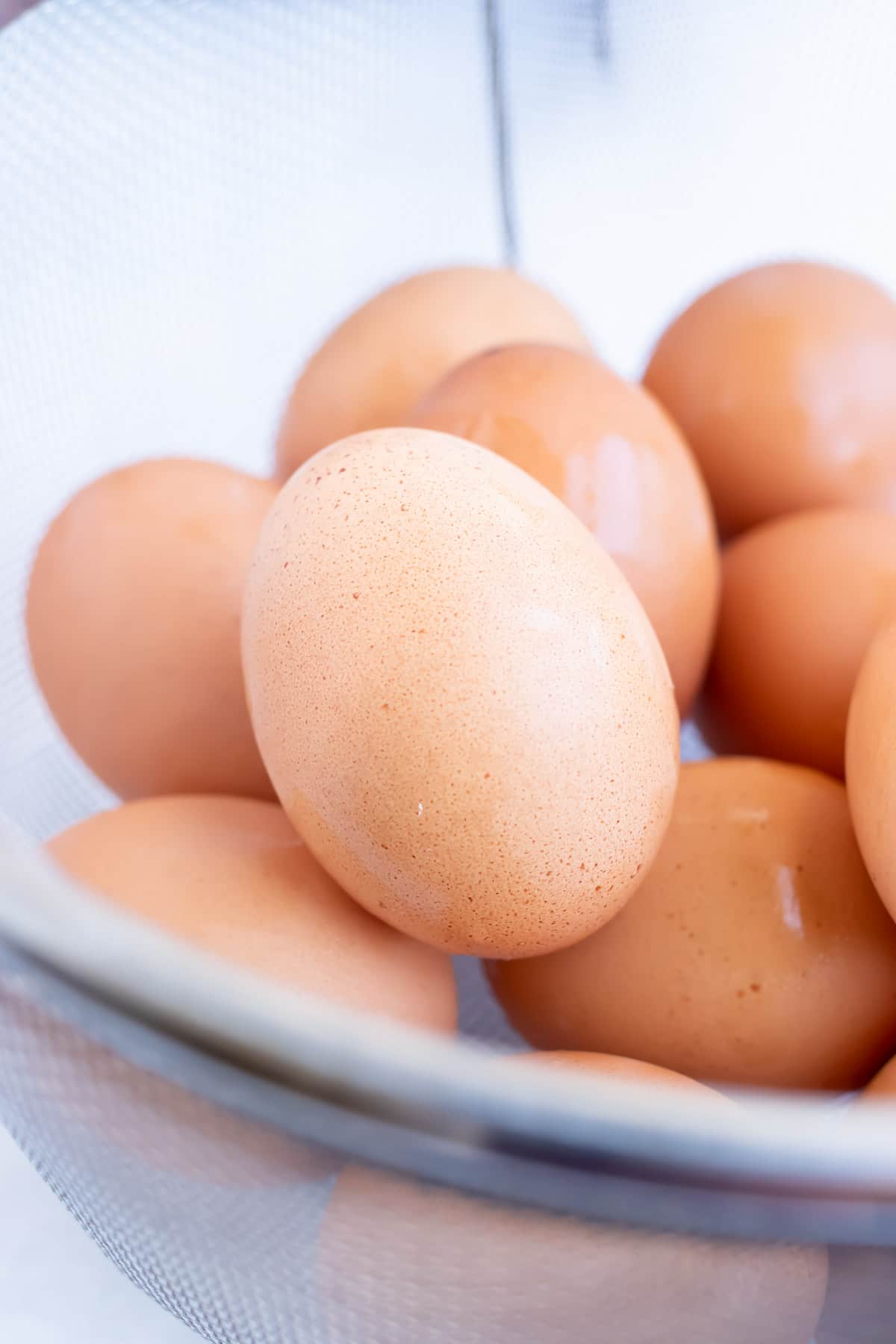
How to Store Eggs
If eggs are stored properly, they rarely go bad. Keeping them at 45°F in your fridge gives them a shelf-life of 3-5 weeks. To store in the fridge follow these guidelines:
- Make sure your fridge is at a proper temperature of 45°F or lower
- Keep them on an inside shelf
- Place them away from pungent foods
- Store them in their original carton
In the United States, storing a carton of eggs below 45°F prevents condensation from building up. This excess moisture can seep through the shell and enter into the egg, shortening its shelf life.
Keeping them in their original container, on an inside shelf (not the back of the fridge or in the door), and away from pungent foods prevents them from absorbing odors and protects them from temperature fluctuations when the fridge opens and closes throughout the day.
How long do eggs last?
Here’s your ultimate guide to know your “egg ages” based on buying them at your grocery store:
| Egg Type | Room Temperature | Refrigerator | Freezer |
| Fresh, Whole Egg | Less than 2 hours | 3-5 weeks | Not recommended |
| Egg Yolks | Less than 2 hours | 2-4 days | 1 year |
| Egg Whites | Less than 2 hours | 2-4 days | 1 year |
| Hard-Boiled Eggs | Less than 2 hours | 1 week | Not recommended |
| Egg Salad | 2 hours | 4 days | Airtight container for 1 month |
| Casseroles with Eggs | Less than 2 hours | 3-4 days | 2-3 months once baked |
| Quiches | Less than 2 hours | 3-4 days | 1-2 months once baked |
As you can see, all forms of eggs are safe at room temperature for up to 2 hours, and most forms of them can last up to 4 days in the fridge. Ultimately, it’s pointless to put raw, whole eggs and hard-boiled eggs in the freezer because it completely changes the texture and quality.
Backyard & Farm Fresh Eggs
Know that backyard and farm fresh eggs are held to different standards because grocery stores wash and sanitize their eggs to reduce the risk of salmonella. During this process, it removes the shell’s natural coating, resulting in a shorter shelf life at room temperature. With your own eggs from your backyard or nearest farmer, that natural shell coating is still there, making it perfectly okay to keep at room temperature for up to 2 weeks.
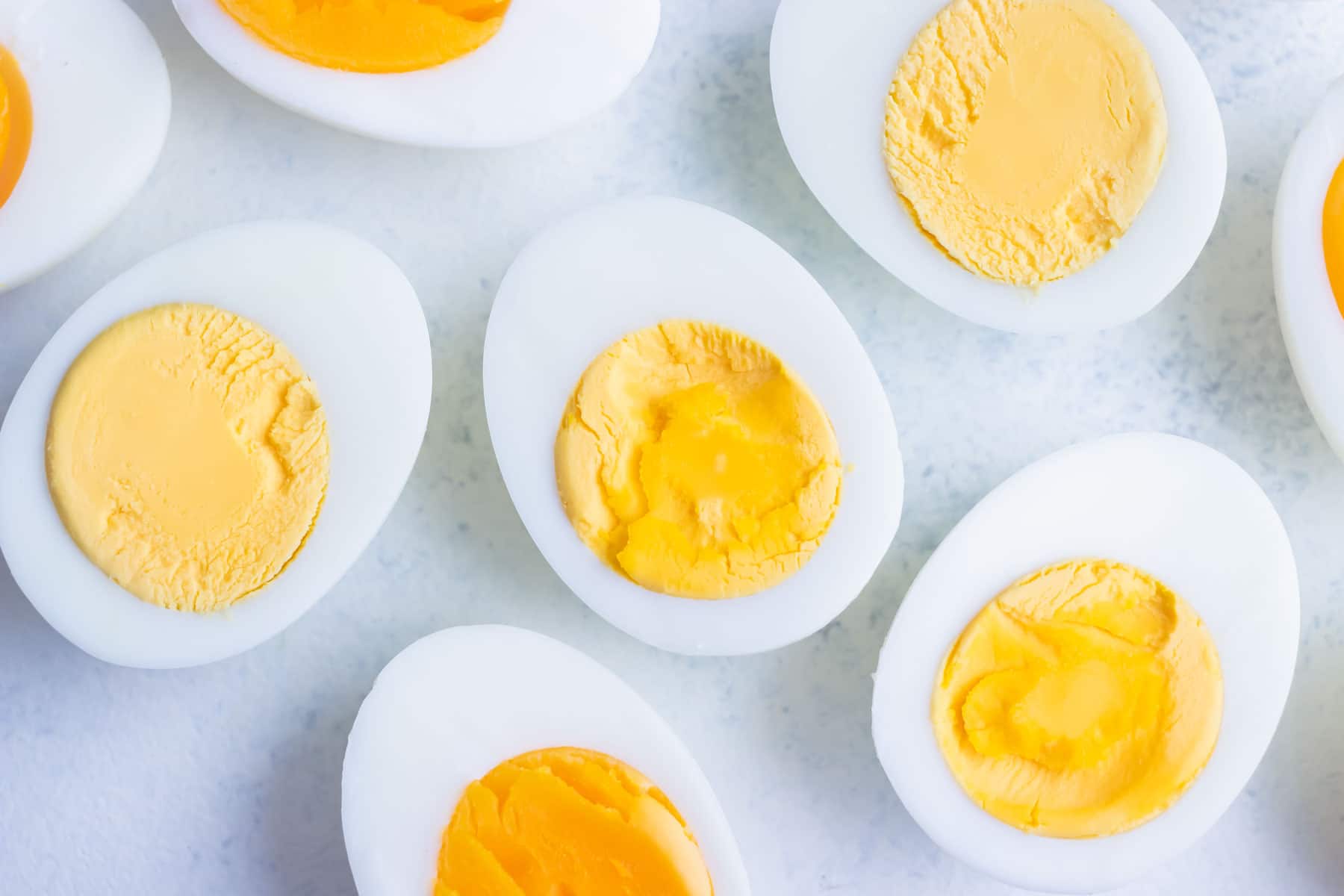
Can you freeze eggs?
Yes, you can freeze eggs, but you can’t freeze them in their shells, as eggs expand when frozen and the shells will crack.
For the best quality, follow these specific steps to preserve them:
- Separate the egg whites and yolks
- Group all the egg yolks and whites in separate freezer-safe containers, leaving a half-inch of space at the top for expansion. Ice cube trays work perfectly for freezing individual whites and yolks!
- Label your eggs: make sure to write a date on each container so you know when to eat them by.
If you’re wanting to stock up on your food storage without these extra steps, powdered eggs are definitely an option. Their expiration dates typically last for years, depending on the brand.
How to Defrost Eggs
To defrost eggs, all you have to do is transfer from the freezer to the fridge and let them completely thaw.
Alternatively, you can run cold water over the egg container to speed up the process. They need to be used immediately after they’ve been thawed. To avoid growth of bacteria, never thaw your eggs at room temperature.
Egg whites will change in consistency when thawing, and the taste might be slightly off, but they are still safe to eat. Egg yolks hold up well in the freezer, so you won’t notice a difference in texture or taste. Your eggs will last up to 1 year in your freezer!
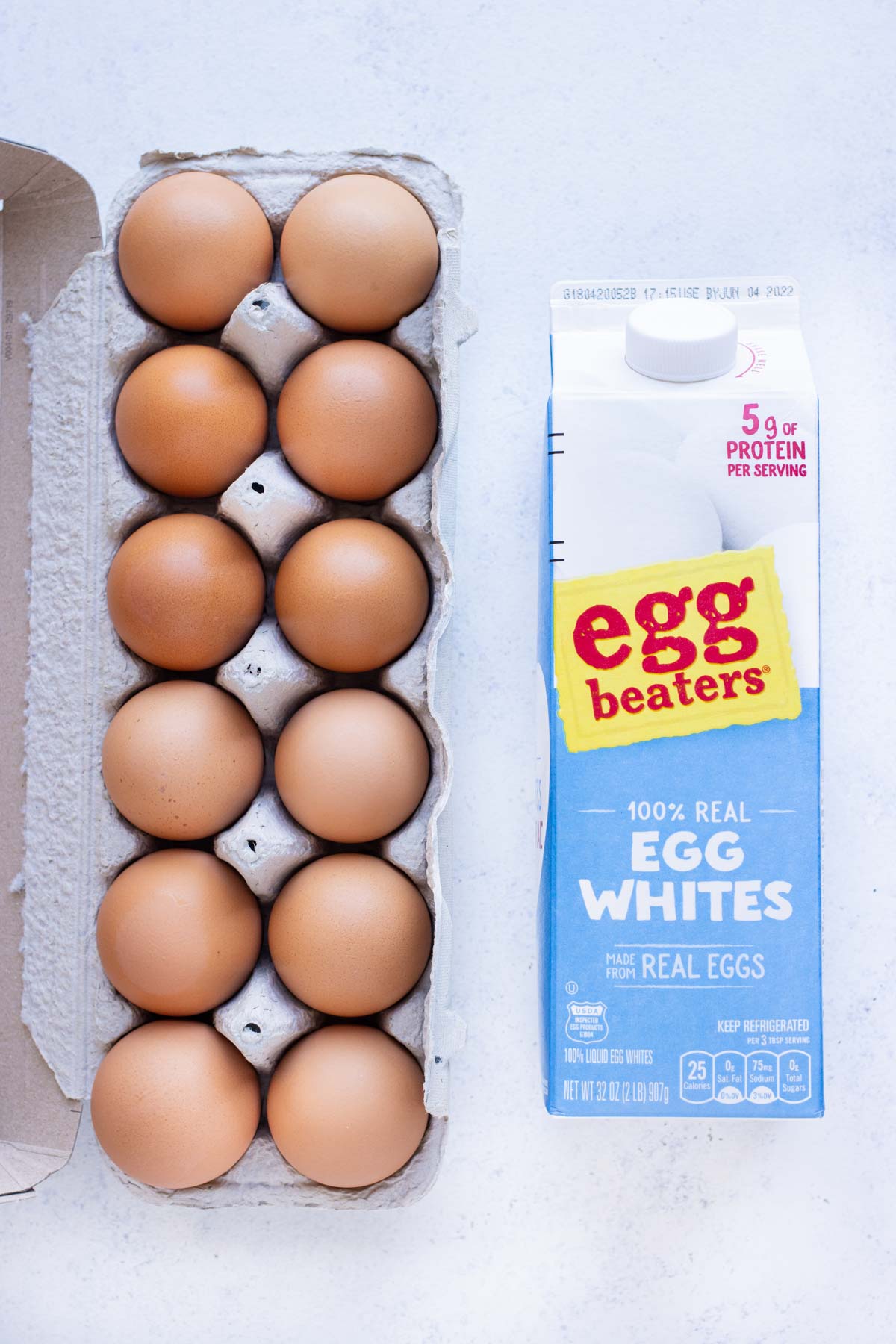
What does the date on the egg carton mean?
The three-digit code on the carton indicates the day of the year when a carton of eggs was packed by farmers and manufacturers. This three-digit code is called the Julian date, and it represents the days of the year. For example, 002 is January 2 and 365 is December 31.
Can you eat eggs past the sell-by date?
Yes, eggs are still usually good to eat past their sell-by date. An “old egg” doesn’t necessarily mean a bad egg. It just means that they aren’t as fresh. If the shell has an unusual film or crack on it, toss it. Once you crack it to use it, do the “sniff test”—a rotten egg will give an unpleasant odor that you’ll need to toss.
How can you tell if an egg is still okay to use?
The float test is an easy way to tell if an egg is still okay to use. The degree to which it sinks or floats can tell you its freshness:
| Sinking eggs lying flat on sides | Very fresh |
| Sinking eggs standing up | Few weeks old, okay to eat |
| Floating eggs | No longer fresh, unsafe to eat |
Other ways to check for egg freshness is checking the sell-by date or best-by date. Eating before that exact date is a good idea. Looking for the pack date (or the three-digit number Julian date) is another option because if the they are less than 30 days from this date, then they are still safe to eat.
If you’ve surpassed these dates, you still have a chance of being able to use and eat them, so just use the float test. When in doubt, float it out!
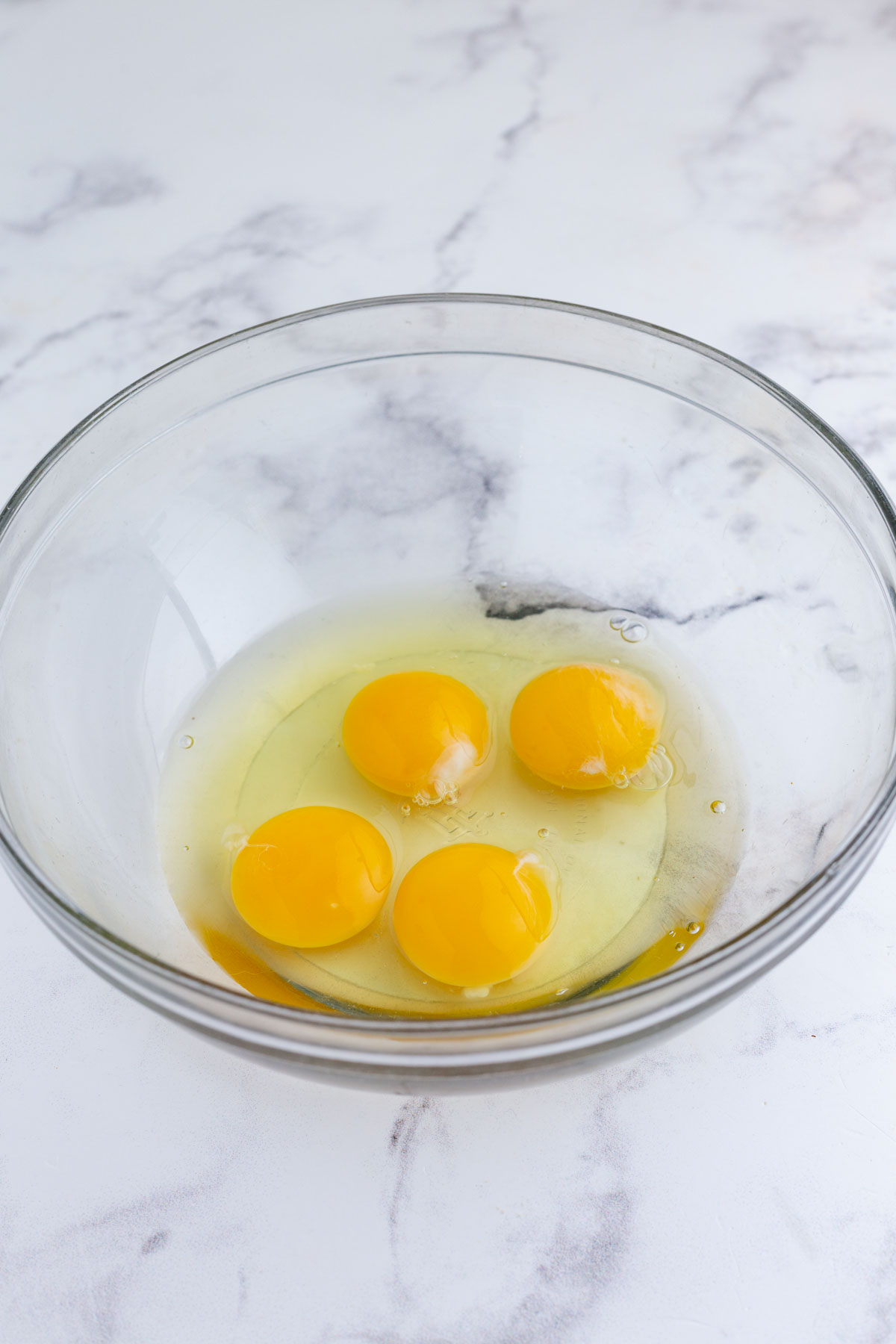
How can I use older eggs?
Here’s a guide to give you a good general rule on how to use eggs based off their freshness:
| Fresh Eggs | Omelets, scrambles, fried, poached |
| Older Eggs | Casseroles, quiches, pies, hard boil |
Can I bake with old eggs?
Yes, you can bake with old eggs. While eggs are a must-have baking ingredient that provide moisture and structure, their freshness usually has little effect on your baked goods.
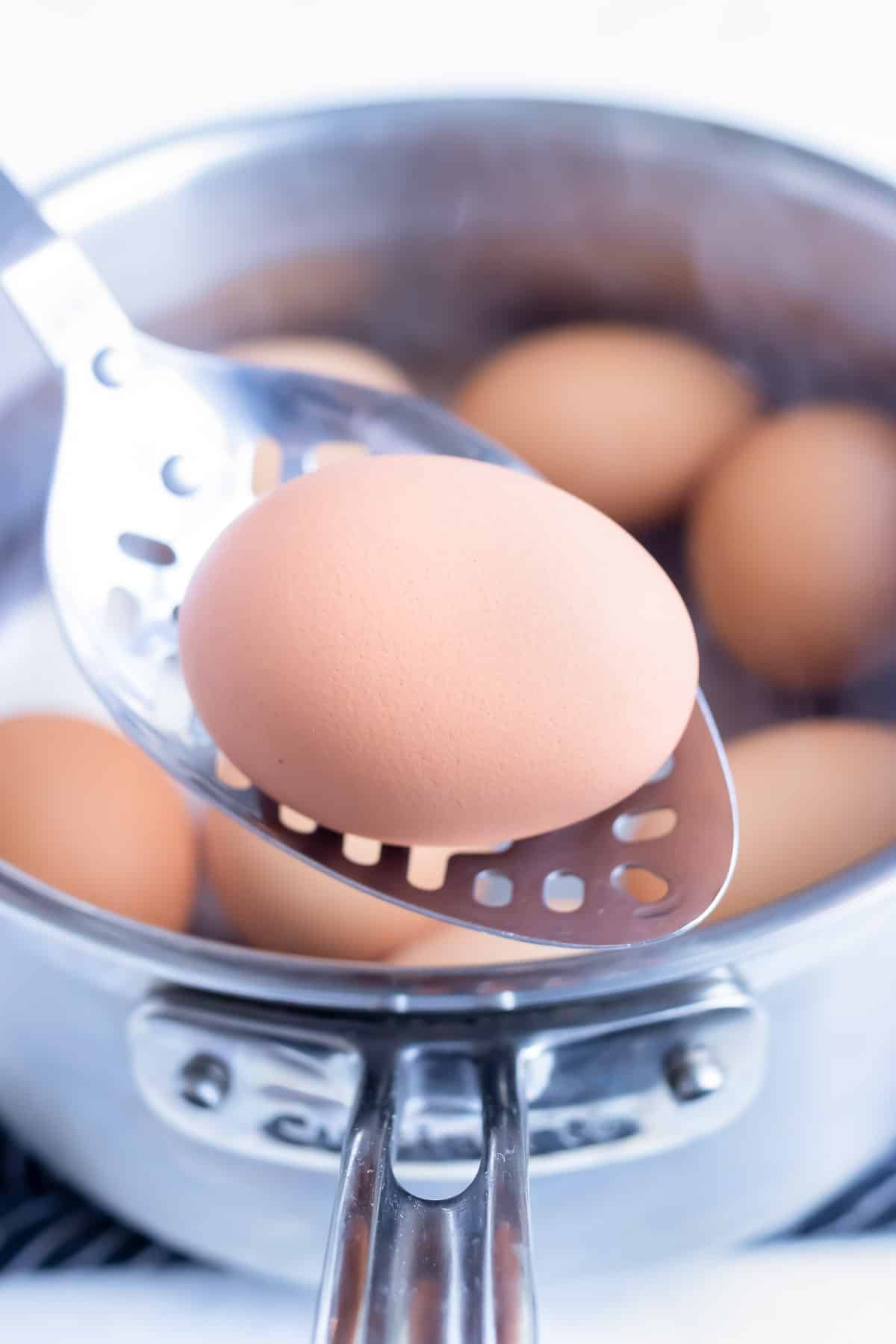
Egg FAQs
If they’ve been stored below at least 45°F, then they can be eaten 4-5 weeks after the carton’s Julian date and up to 3 months from that date, though their freshness will be compromised.
Refrigerated eggs are freshest up to 5 weeks from the Julian date, and then their quality begins to decline, even if they are still safe to eat.
Yes, but their quality will decline starting at 5 weeks after the Julian date.
Eggs can last 5 weeks to 3 months in the fridge or 1 year in the freezer if stored properly.
If they sink to the bottom of a bowl and lay flat on their side, they’re still safe to eat. If they sink and stand at the bottom, they are not as fresh, but still can be eaten safely. Additionally, if they float to the top, don’t eat them.
Farmers have up to 30 days from when the egg is laid to put it in the carton for the stores.
Using older ones in cakes will not make much of a difference in your overall baking since egg is not the main ingredient.
For the freshest eggs, the longest you can keep them in the refrigerator is 3-5 weeks when stored at 45°F or less. After that, their freshness declines but are still okay to eat for up to 3 months.
